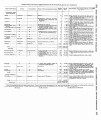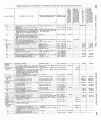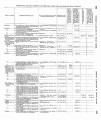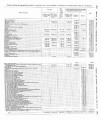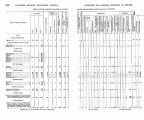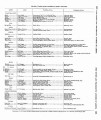| OCR Text |
Show 10 REPORT OF THE COMMISSIONER OF INDIAN AFFAIRS whereby that portion of the reserve lying north of the Snake and Clearwater Rivers, the SouthFork of the Clearwater, and the trail from said South Fork by the '<W eipo root-ground" across the Bitter Xoot Mountains, was opened to the whites in common with the Indians for mining purposes. In defimce of law, and despite the protestations of the Indian agent, a town.site was laid off in October, 1861, on the reser-vation, and Lewiston, with a population of twelve hundred, sprung into existence. To this another grievance was added in the distribution of annuities, articles being supplied in inadequate quantities. In 1862, only 247 blankets were furnished the tribe, or one blanket to six In-dians, and 4,393 yards of calico, which was less than two yards to each Indian. Giving a blanket to one Indian works no satisfaction to the other five, who receiv~nonea, nd two yards of calico to each Indian affords hut little help and no advancement; yet this mas all that could be distributed owing to the meagre appropriations allowed. By the spring of 1863 it was very evident that, from the change of circnmstancea and contact with whites, a new treaty was required to properly define and, if possible, curtail the limits of the reserve. Ao-cordingly, on the 9th of June, 1863, Ualviu H. Hale, Charles Hutchins, and 8. D. Howe. commissioners on thenart of the United States. and Chief Ln a~e r\,;h o.se opinion Governor Gtrveus held iu higher citeam tllnn that of any olhrr 11idiai1 in tho Territory, with fifty otller chiefs arul hendmeu. 1twe11rvo l'~vl~owme re r,srtien to the treaty of 1855.l on the part of the'Nez P"ercBs, made a new treaty, whereby t~ereservewas reduced to its present limits, excluding Wallowa, Salmon River, and Alwowai Vallevs. After the conclusion of these neeotiations. the Nez l~r i , tt4r ibo di!:ided iltro two factions, viz, tile trr.lty or P H ~ ~ ClC;a rly and the m)n.tre%tyo r war p:lrty, t l ~ rln rrer bciug led bg Joscpl~,L ooking. Gl:lss. Rip Thouder. \Vhite Bird. a~ldI ldrlr ~ I . ~ I IthI e Li.o.l ~r. Clrief J u - srpI1 :iud i i b~aud , utterly ifnoring tho trt;ity of 1Rt;3, col~tinnectlo elnim t11r ~ ~ ~ I I oTl 7\ t'~aI Icsx, here he w.~st i~vicl.yp rrmittr~lt u roilm wilhol~r restraint, until theencroacho~entso f white settlers induced the govern-ment to take some definite action respecting this band of non-treaty Nez Perch A commisfiou, coosisting of Hon. J. P. 0. Shanks, Hon. T. W. Beo-nett, and Agent 8. W. Rked, was appointed March 26, 1873, to investi-gate and report upon Indian affairs in Idaho; and Superintendent T. Odeneal and Agent J. B. Monteith were designated, February 7, and 25,1873, respectively, as a special commission to make an investigation and hold a council with Chief .Joseph and band, and other Indians oc-cnnvine Wallowa Vallev in Oree. on.. with a view to their removal. if j~rictiriblr,r o t l~cl. apmni reservo. The fiv~t-~,ntnce:~oml minsion sthta the source of the tllrll existil~gt roubltfs \%-it1t1h e NP%P t,r('C: 111dianst o have been the encroachment-of whites upon their farming-laods and upon their fishery and hunting-grounds, as well as the actual settlement of four white men within the limits of the reduced reservation, iu viola-tion of treaty stipulations. The other commission held the removal of these rosing Nez Perch to the Lapwai reservation to be impracticable. So long as the Wallowa Valley remained unsettled, Chief Joseph and his followers retained it in auiet uossession. under the full swav and i ~ ~ f l ~ ~oef uSrnrr ollallu and brbcr;.dreamer:s" or medicine-men," who 11eld t l~attl rc e:irtb was a part of themsrlres, aud that ( : h i d Josrpli had a right to roam wherever fmpnlse or inclination led him. As a removal had been declared to be impracticable, a~id his right as a non-treaty Indian to occup.y the Wallowa Valley was still mooted, it was deemed to be good policy, in avoidance of a conflict liable to be the result of |
















































